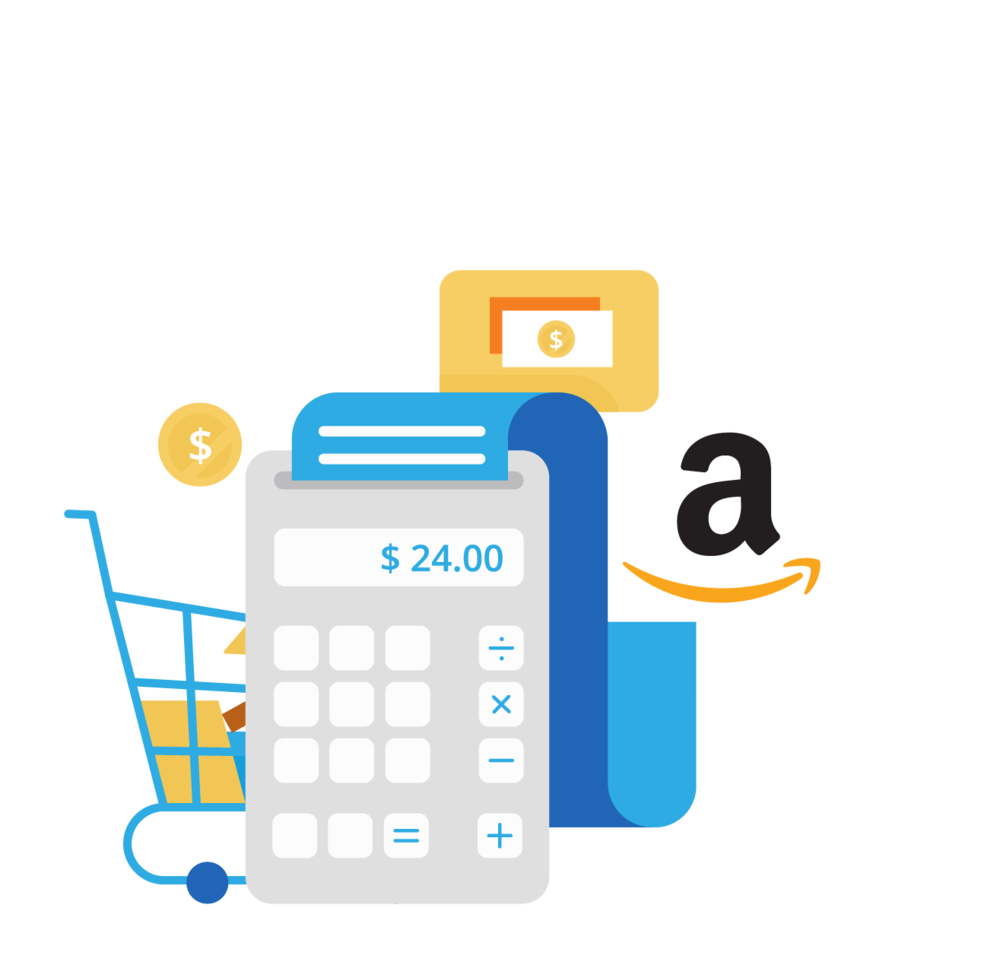Traditional Bookkeeping vs. Ecommerce Bookkeeping

In the world of business, bookkeeping is an essential function that ensures financial health and stability.
Bookkeeping has long been the backbone of traditional brick-and-mortar businesses, helping to track income, expenses, and overall financial performance. With the rise of ecommerce and online stores, bookkeeping is just as essential – however, it comes along with unique challenges and considerations.
In this guide, we’ll explore the key differences between traditional and ecommerce bookkeeping and why ecommerce requires a specialized approach.
Key takeaways – what makes ecommerce bookkeeping challenging?
- Complicated payments & fees – Ecommerce businesses don’t get simple payments like brick-and-mortar stores. Instead, they receive lump sum payouts from platforms (e.g., Shopify or Amazon) that mix sales, fees, and refunds. Tracking and breaking these down correctly is tricky.
- Complicated taxes & currencies – Selling online means dealing with different tax laws across states and countries. Plus, international sales require handling multiple currencies and exchange rate changes.
- Inventory & returns challenges – Ecommerce stores often store products in multiple locations (warehouses, fulfillment centers, or dropshippers), making inventory tracking harder. Returns are also more frequent, requiring careful record-keeping.
Table of Contents
Learn how to set up your ecommerce accounting foundations like a pro
Accounting for ecommerce sales presents a unique set of challenges. Discover the key concepts, software, terminoloy and knowledge you need to simplify your business.
Download our free guide
Traditional bookkeeping: A quick overview
Traditional bookkeeping involves the systematic recording of financial transactions for businesses with physical locations. It includes tasks such as:
- Recording sales and expenses
- Managing accounts receivable and payable
- Reconciling bank statements
- Tracking inventory and cost of goods sold (COGS)
- Preparing financial statements
This type of bookkeeping is relatively straightforward, with transactions primarily occurring in person and being easily trackable
Ecommerce bookkeeping: Navigating the online market
Ecommerce bookkeeping, on the other hand, deals with businesses that operate primarily or exclusively online. Ecommerce bookkeeping serves the same basic function as traditional bookkeeping (i.e., compliance and generating financials), and many of the actual tasks are the same (e.g., recording transactions).
However, ecommerce bookkeeping introduces several complexities due to the digital nature of transactions and the global reach of online businesses.
If you have bookkeeping experience for a traditional brick-and-mortar business, it’s a helpful foundation; however, you will still experience a learning curve when managing the bookkeeping for an ecommerce store.
What makes ecommerce bookkeeping different (and more complicated)?
So, what are the main factors that set ecommerce bookkeeping apart? Let’s dive in.
You can also watch this webinar recording for an in-depth overview of how ecommerce bookkeeping is different.
Lump sum payment structure
In traditional business models, payments are typically straightforward, with clear transaction dates and amounts. However, ecommerce often involves lump sum payment structures, where multiple transactions are aggregated into a single payout by online marketplaces or payment processors, often deposited biweekly.
This lump sum structure complicates bookkeeping because the payment amounts must break down these lump sum payments into individual sales, fees, refunds, and other adjustments.
Lump sum payments (or “settlements”) can also sometimes cross a month-end bookkeeping boundary (e.g., if you receive a payout that spans from September 29 to October 12. Proper accrual accounting requires that revenue is recognized when it is earned, not when it is received. When a lump sum payment covers transactions from two different months, it becomes challenging to allocate the correct revenue to each respective month.
A common error that many inexperienced ecommerce bookkeepers make is recording the entire payment amount to a “sales” or “income” account. However, this is incorrect and could cause you to over or under-report income (which could then cause you to over or underpay any applicable sales tax or VAT).
Payment processors and fees
Ecommerce transactions are processed through various payment gateways (PayPal, Stripe, Square, etc.), each with its own fee structure and settlement periods.
Moreover, most sales channels (especially Amazon) have a complicated fee structure, and each fee must be captured and recorded correctly to ensure that revenue is correctly recorded after deducting transaction fees.
Sales tax / VAT / GST compliance
Sales tax regulations for ecommerce businesses are complex and vary by state and country. Online sellers must navigate the intricacies of nexus laws, tax rates, and reporting requirements for each jurisdiction where they have customers (and often where they hold inventory).
Currency conversion
For ecommerce businesses with international customers, dealing with multiple currencies is a common occurrence. Bookkeepers must manage currency conversion, track exchange rates, and account for any gains or losses due to fluctuations in currency value.
Inventory management
Unlike traditional businesses, ecommerce stores may have inventory stored in various locations, including third-party warehouses, fulfillment centers, and dropshipping partners. Accurate tracking of inventory levels, costs, and movements across different locations is crucial for maintaining profitability and avoiding stockouts or overstock situations.
Returns and refunds
The online shopping environment often leads to higher rates of returns and refunds. Properly accounting for these transactions, adjusting inventory levels, and handling customer refunds can be more frequent and complex compared to traditional brick-and-mortar businesses.
Multi-channel sales tracking
Ecommerce businesses often sell through multiple channels, such as their website, online marketplaces (Amazon, eBay, Etsy), and social media platforms. Each channel has its own sales data, fees, and payment processors. Keeping track of all these transactions and consolidating them into a single accounting system can be a daunting task.
Data integration and automation
Ecommerce bookkeeping relies heavily on technology for data integration and automation. Using tools like ecommerce platforms (Shopify, Amazon, eBay, etc.), accounting software (QuickBooks, Xero), and inventory management systems can streamline processes but also requires a good understanding of how to integrate and manage these systems effectively.
Your ecommerce bookkeeping toolkit
Successfully managing the complexities of ecommerce bookkeeping requires the right set of tools to help you capture all transactions and manage operations efficiently.
Accounting software
If you’re just starting out, it can be tempting to manage your bookkeeping via a spreadsheet. However, spreadsheets are prone to human error, take a ton of time to update, and won’t grow with your business.
Learn more about the best accounting software for Amazon sellers, and the best accounting software for Shopify merchants.
Sales channel + accounting software integration
Even with accounting software, you’ll need a way to get your sales and transaction data from your sales channel(s) – Shopify, Amazon, eBay, Etsy, and/or Walmart – into your accounting software automatically.
Integration tools like A2X can help with this. In addition to saving you time, you’ll have accurate, up-to-date, best practice financials.
Learn more about integrating your sales channel data with your accounting software via the following resources:
- How to integrate Amazon and QuickBooks Online
- How to integrate Amazon and Xero
- How to integrate Shopify and QuickBooks Online
- How to integrate Shopify and Xero
Inventory management
Ecommerce businesses usually need to manage inventory. If you’re a smaller seller, a spreadsheet can often cover your inventory management requirements. However, if you’re a larger seller, It’s a good idea to have an inventory management solution that can help handle complex ecommerce business inventory needs, such as managing inventory across multiple sales channels and warehouses, providing real-time insights, and streamlining operations.
Check out the following solutions:
Sales tax software
Sales tax/VAT/GST management can be incredibly complicated, so it’s usually a good idea to have a tool that can help you stay compliant with ever-changing tax regulations.
Check out the following solutions:
Becoming an ecommerce bookkeeping specialist
If you’re already an accountant or bookkeeper and you’re interested in expanding your business by taking on ecommerce business clients, don’t let the added complications that come with ecommerce intimidate you!
There are a number of resources available that can help you gain the skills and knowledge you need to provide bookkeeping services to the ecommerce industry.
Here are a few we recommend:
- Learn how to start an ecommerce niche – Watch this tutorial to learn how an accounting practice successfully specialized in ecommerce.
- Get A2X Certified – Take the A2X Certification Course to learn how to use A2X to make ecommerce bookkeeping easier and more accurate.
- Financly’s Ecommerce Academy – An academy developed by the ecommerce accounting professionals at Financly for ecommerce accounting professionals to help spread the knowledge of how to better serve ecommerce business’s bookkeeping needs. Use code A2X for 20% off.
- LedgerGurus University – A great resource for courses on sales tax and inventory. A2XPartnerProgram for 20% off.
Working with an ecommerce bookkeeping specialist
Given the complexities listed above, it’s a good idea for ecommerce businesses to work with a professional accountant or bookkeeper who has proven experience with ecommerce and specialized knowledge and skills.
A deep understanding of ecommerce platforms, payment processors, inventory management systems, and sales tax regulations is essential. Proficiency in integrating various software tools and automating processes can also significantly enhance the efficiency and accuracy of bookkeeping for ecommerce businesses – and help you get more value from working with a specialized bookkeeper.
The good news? You can easily find an ecommerce accounting specialist via the A2X Ecommerce Accounting Directory.
Manage your books for your ecommerce business correctly
By seeking to understand the differences between bookkeeping for a traditional brick-and-mortar business and bookkeeping for an ecommerce business, you’re off to a great start!
Using the resources outlined above, along with tools like A2X, you’ll not only be able to accomplish ecommerce bookkeeping with expert efficiency – you’ll also be able to ensure accurate numbers, which are key to business success.
Learn how to set up your ecommerce accounting foundations like a pro
Accounting for ecommerce sales presents a unique set of challenges. Discover the key concepts, software, terminoloy and knowledge you need to simplify your business.
Download our free guide



